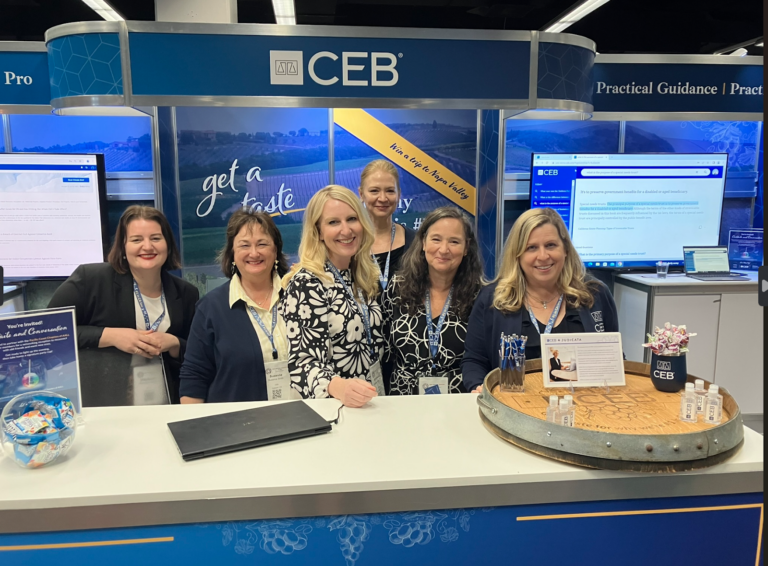
The Evolution of Consumer Rights Through Case Law
Estimated reading time: 9 minutes
Consumer rights in California have evolved significantly over the years, shaped by a series of landmark cases that have established important precedents in consumer protection law. From safeguarding against unfair business practices to ensuring transparency and accountability, judicial decisions have played a crucial role in defining the rights of consumers and the responsibilities of businesses. California, known for its progressive legal landscape, has often led the way in protecting consumers, addressing issues ranging from false advertising and deceptive practices to data privacy and product safety.
The Consumers Legal Remedies Act (CLRA)
Vasquez v. Superior Court (1971)
Leonard Vasquez and others filed a class-action lawsuit against several companies for deceptive advertising and fraudulent sales practices. The plaintiffs sought to represent a large group of consumers who were misled by the defendants. The key issue was whether consumers could bring a class action lawsuit for deceptive practices under California law, specifically in the context of the Consumers Legal Remedies Act (CLRA).
The California Supreme Court ruled that class action lawsuits were permissible under the CLRA. The court emphasized the importance of class actions in consumer protection, particularly when individual damages are small, making it impractical for consumers to sue individually. This case significantly expanded consumers’ ability to challenge fraudulent practices through class actions, allowing them to pool resources and seek redress as a group.
Flores v. Southcoast Automotive Liquidators, Inc. (2017)
Krystal Flores purchased a car from Southcoast Automotive Liquidators, Inc., based on deceptive advertising that misrepresented the car’s condition and price. After realizing the car had significant issues and that the sales practices were misleading, Flores sued the dealership. The case centered on whether Flores could pursue claims for fraud and under the Unfair Competition Law (UCL) in addition to remedies provided under the CLRA, especially after the dealership made a “correction offer” under the CLRA.
The court held that the CLRA’s remedies are not exclusive, and a correction offer under the CLRA does not bar a consumer from pursuing other legal remedies for fraud or under the UCL. The court also awarded damages and imposed an injunction on the dealership’s advertising practices. Flores reinforced the cumulative nature of consumer protection laws, allowing broader protection against deceptive practices.
How Flores Built on Vasquez
Vasquez established the foundational principle that consumers could pursue class actions under the CLRA, making it easier for groups of consumers to seek redress for widespread deceptive practices. Decades later, Flores clarified that even when a business makes a correction offer under the CLRA, consumers can still pursue additional remedies under other laws, such as the UCL or common law fraud. The Flores decision expanded the scope of consumer protection by allowing consumers to seek full compensation through multiple legal channels, even when specific remedies (like class actions) are provided under the CLRA. This marked an evolution in consumer protection, ensuring that businesses could not escape liability by merely complying with one aspect of consumer law.
False Advertising and Unfair Competition
Kwikset Corp. v. Superior Court (2011)
Kwikset centered on Kwikset Corporation’s practice of labeling its locksets as “Made in U.S.A.” when, in fact, they contained foreign-made components or were partially assembled outside the United States. James Benson, a consumer, filed a lawsuit under California’s Unfair Competition Law (UCL) and false advertising law, alleging that Kwikset’s labeling was deceptive and misleading. Benson argued that he, along with other consumers, would not have purchased the locksets had they known the true origin of the products. After a bench trial, the court ruled in favor of Benson, finding that Kwikset had engaged in unlawful and deceptive business practices.
The California Supreme Court upheld the lower court’s ruling, emphasizing that consumers have standing to sue under the UCL and false advertising law when they can demonstrate that they were misled by a product’s labeling and suffered economic harm as a result. The court rejected Kwikset’s argument that consumers received the “benefit of the bargain” because the products were not defective and performed as expected. Instead, the court ruled that the economic harm derived from the misleading representation of the product’s origin, which was sufficient to establish standing. This decision affirmed that the misrepresentation itself, regardless of the product’s functionality, could cause economic injury if it influenced the consumer’s purchasing decision.
Impact on Consumer Rights in California
Kwikset broadened the scope of standing under the UCL and false advertising law. The ruling established that consumers who are misled by false advertising, particularly regarding product labeling, can pursue legal action even if the product itself is not defective. This decision underscored the importance of truthful labeling and the protection of consumers from deceptive practices. It ensured that businesses could be held accountable for misleading claims, thereby promoting fair competition and consumer trust in the marketplace.
California Lemon Law (Song-Beverly Consumer Warranty Act)
The Song-Beverly Consumer Warranty Act, commonly known as the California Lemon Law, was enacted in 1970 and has been refined through various court cases. It requires manufacturers to repair, replace, or refund “lemons,” or defective products, particularly automobiles, that fail to meet quality and performance standards.
Kirzhner v. Mercedes-Benz USA, LLC (2020)
Allen Kirzhner leased a new vehicle from Mercedes-Benz USA in 2012. During the warranty period, the vehicle exhibited multiple defects, including issues with the command system, navigation system, key fob, steering column adjustment, power seats, and coolant level warning light. Kirzhner repeatedly presented the vehicle for repair, but Mercedes-Benz was unable to remedy the defects after a reasonable number of attempts. Nearly six months after filing a lawsuit, Kirzhner accepted a settlement offer from Mercedes-Benz, which included restitution or replacement under the Song-Beverly Consumer Warranty Act, commonly known as California’s Lemon Law. The main legal issue was whether Kirzhner could recover vehicle registration renewal and nonoperation fees as either collateral charges or incidental damages under the Act.
The California Supreme Court ruled that registration renewal and nonoperation fees are not recoverable as collateral charges because they are not auxiliary to or do not supplement the price paid for the vehicle. However, these fees may be recoverable as incidental damages if they were incurred as a result of the manufacturer’s breach of its duty to promptly provide a replacement vehicle or restitution under the Act. The court reversed the judgment of the Court of Appeal and remanded the case for further proceedings to determine if these fees were incurred as a result of Mercedes-Benz’s failure to comply with its obligations under the Act.
Sanchez v. Valencia Holding Co., LLC (2015)
Gil Sanchez purchased a used Mercedes-Benz from Valencia Holding Company, LLC. Sanchez filed a class action lawsuit, alleging that Valencia engaged in various unfair practices, including false representations about the car’s condition. The sales contract included an arbitration agreement with a class action waiver and other provisions favoring the seller, such as allowing appeals to a panel of arbitrators if the award exceeded $100,000 or included injunctive relief. The trial court denied Valencia’s motion to compel arbitration, deeming the class action waiver and the entire arbitration agreement unenforceable under California law. This decision came in the wake of the U.S. Supreme Court’s ruling in AT&T Mobility LLC v. Concepcion (2011), which held that the Federal Arbitration Act (FAA) preempts state laws that prohibit class action waivers in arbitration agreements.
The California Supreme Court ruled that the class action waiver was enforceable under the FAA, as mandated by Concepcion. However, the court held that other provisions of the arbitration agreement were unconscionable under California law, including those related to arbitration appeals and the requirement for the appealing party to front the costs of the appeal. The court ultimately reversed the lower court’s ruling on the unconscionability of the arbitration agreement but upheld the enforceability of the class action waiver.
 Consumer Privacy
Consumer Privacy
Pineda v. Williams-Sonoma Stores, Inc. (2011)
The Song-Beverly Credit Card Act of 1971 prohibits businesses from requesting and recording a customer’s personal identification information during a credit card transaction. Plaintiff Jessica Pineda filed a lawsuit against Williams-Sonoma, alleging that the store violated the Act by asking for and recording her ZIP code when she made a purchase with a credit card. The ZIP code was then used to obtain her home address through a reverse lookup process.
The central issue in the case was whether a ZIP code constitutes “personal identification information” under the Act. The California Supreme Court held that a ZIP code is indeed personal identification information because it pertains to the cardholder and can be used to identify them when combined with other data, such as a name. The Court emphasized that the Act’s purpose is to protect consumer privacy and prevent the misuse of personal information for marketing or other purposes. By ruling that a ZIP code falls within the scope of the Act’s protections, the Court reversed the Court of Appeal’s decision and reinforced consumer rights to privacy, setting a precedent that businesses must comply with stringent rules regarding the collection and use of customer information during credit card transactions.
Let Continuing Education of the Bar (CEB) Guide Your Practice
CEB offers comprehensive resources and updates that allow lawyers to stay informed about recent precedents and shifts in the legal landscape. CEB ensures that attorneys can maintain a thorough understanding of current legal standards and changes with its many online resources:
CEB Practitioner:
CEB’s Practitioner Tool offers a vast array of case law, statutes, and practical guides across various legal fields. This tool streamlines research, enhances legal practice efficiency, and provides up-to-date information, making it invaluable for lawyers seeking quick and reliable legal insights. All Practitioner resources are written by California lawyers, for California lawyers.
OnLAW Pro:
CEB’s all-in-one legal research solution with authoritative practice guides, OnLAW Pro is written by California lawyers for California lawyers. All practice guides are fully integrated with CEB’s primary law research tool, allowing you to research California, Ninth Circuit Court of Appeals, and U.S. Supreme Court case law, as well as California statutes and the California Constitution. OnLAW also comes with TrueCite®, CEB’s powerful case law citator.
MCLE Solutions:
CEB’s MCLE solutions, including CLE Passport and CEB’s CLE Compliance Package, provide a robust platform for California lawyers seeking to fulfill their CLE requirements. These solutions offer a diverse range of courses, covering various legal topics and practice areas. Designed for convenience and flexibility, the programs are available online, allowing attorneys to access high-quality, accredited educational content anytime, anywhere. CEB’s MCLE Solutions are an ideal blend of practicality and expertise, ensuring legal professionals stay informed, compliant, and at the forefront of their field.
Maximize the effectiveness of your legal practice by integrating CEB’s innovative tools into your work. Visit our website to explore these resources and begin transforming your approach to legal challenges. Stay informed and stay ahead with CEB.

 Consumer Privacy
Consumer Privacy


